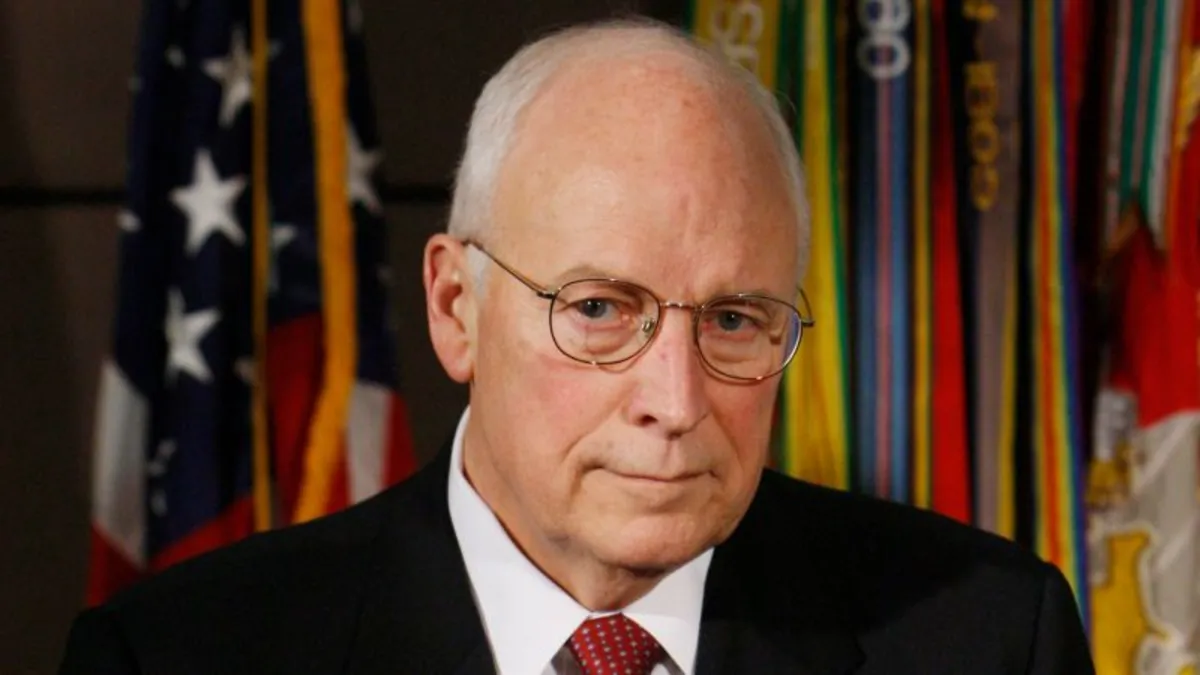
Dick Cheney, often regarded as one of America's most powerful modern vice presidents, has passed away at the age of 84. A statement from his family revealed that he died from complications related to pneumonia and cardiac and vascular diseases. Surrounded by his beloved wife Lynne, daughters Liz and Mary, and other family members, Cheney's legacy as the chief architect of the “war on terror” remains a significant part of his story.
Cheney served as the 46th vice president of the United States alongside Republican President George W. Bush from 2001 to 2009. His tenure was marked by his influential role in the controversial invasion of Iraq, a decision driven by what many now recognize as faulty intelligence and assumptions. The Cheney family expressed their deep gratitude for his contributions to the nation, stating, “We are grateful beyond measure for all Dick Cheney did for our country.”
Throughout his political career, Cheney was a towering and polarizing figure in Washington. Despite his hardline conservative stance, he found himself increasingly ostracized from the Republican Party during his later years, particularly due to his public criticism of former President Donald Trump. Cheney labeled Trump a "coward" and a significant threat to American democracy, showcasing his commitment to traditional conservative values.
In a surprising turn, Cheney cast his final vote in the 2024 presidential election for Kamala Harris, a liberal Democrat and fellow vice president, illustrating the dramatic shift in the GOP's ideological landscape. This decision symbolized Cheney's distancing from the populist movement within the party that had turned against his long-held beliefs.
Dick Cheney faced numerous health challenges throughout his life, including cardiovascular disease that began in his late thirties. Despite these struggles, he lived a full life, undergoing a heart transplant in 2012, which he referred to as “the gift of life itself.” His resilience allowed him to maintain a vigorous presence in political discourse, even after his time in office.
Cheney's transformation from a seasoned politician to a key player in the war on terror was catalyzed by the September 11 attacks in 2001. On that fateful day, he was in the White House when the second plane hit the World Trade Center. This moment drove his determination to retaliate against those responsible, leading to a foreign policy focused on regime change and pre-emptive military action, primarily in Iraq and Afghanistan.
Cheney's aggressive promotion of the Iraq War, based on claims of weapons of mass destruction and links to al-Qaeda, has been heavily scrutinized. As a central figure in the Bush administration, he played a significant role in shaping the narrative that justified the invasion of Iraq in 2003. However, subsequent investigations revealed that many of these claims were exaggerated or unsubstantiated, contributing to widespread criticism of his legacy.
Despite the controversies and his declining approval ratings, Cheney maintained a steadfast belief in his actions during the war on terror. He famously stated, “I would do it again in a minute,” emphasizing his conviction that his decisions were necessary to protect the United States. Cheney's tenure also highlighted the moral and legal challenges faced by the U.S. during this period, particularly regarding the use of enhanced interrogation techniques.
In his later years, Cheney became a vocal critic of Donald Trump and the direction of the Republican Party. His daughter, Liz Cheney, also took a stand against Trump, sacrificing her political career in the process. In a poignant moment captured on video, Dick Cheney condemned Trump’s actions during the January 6 insurrection, declaring him a threat to the republic.
Born on January 30, 1941, in Lincoln, Nebraska, Cheney’s early life in Wyoming shaped his political ambitions. After overcoming personal challenges, including struggles in education and early career setbacks, he rose to become one of the most influential figures in American politics. Cheney is survived by his wife Lynne, daughters Liz and Mary, and seven grandchildren.
Dick Cheney’s passing marks the end of an era defined by complex political landscapes and contentious foreign policies. His legacy will undoubtedly continue to spark debate and discussion regarding the role of government, the execution of foreign policy, and the responsibilities of leadership in times of crisis.